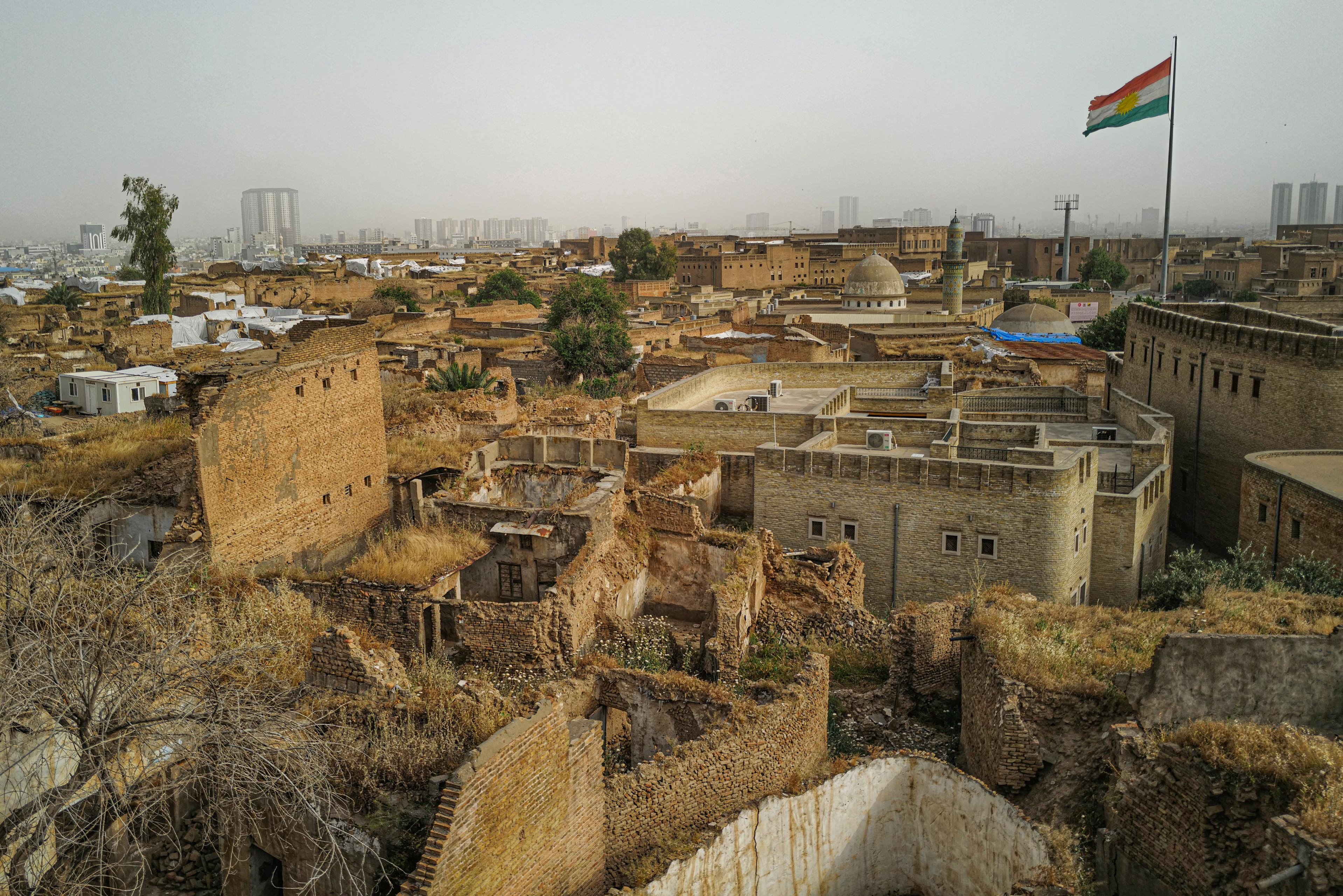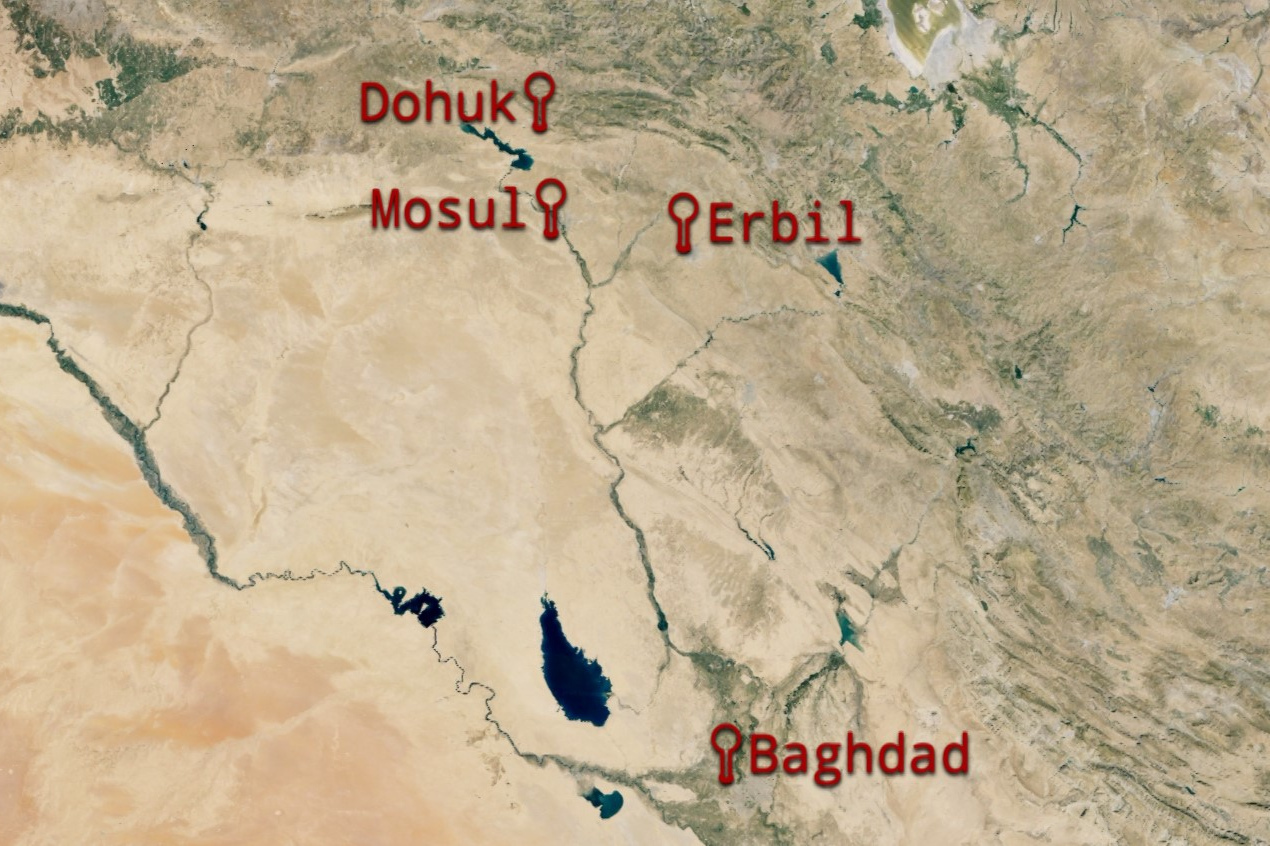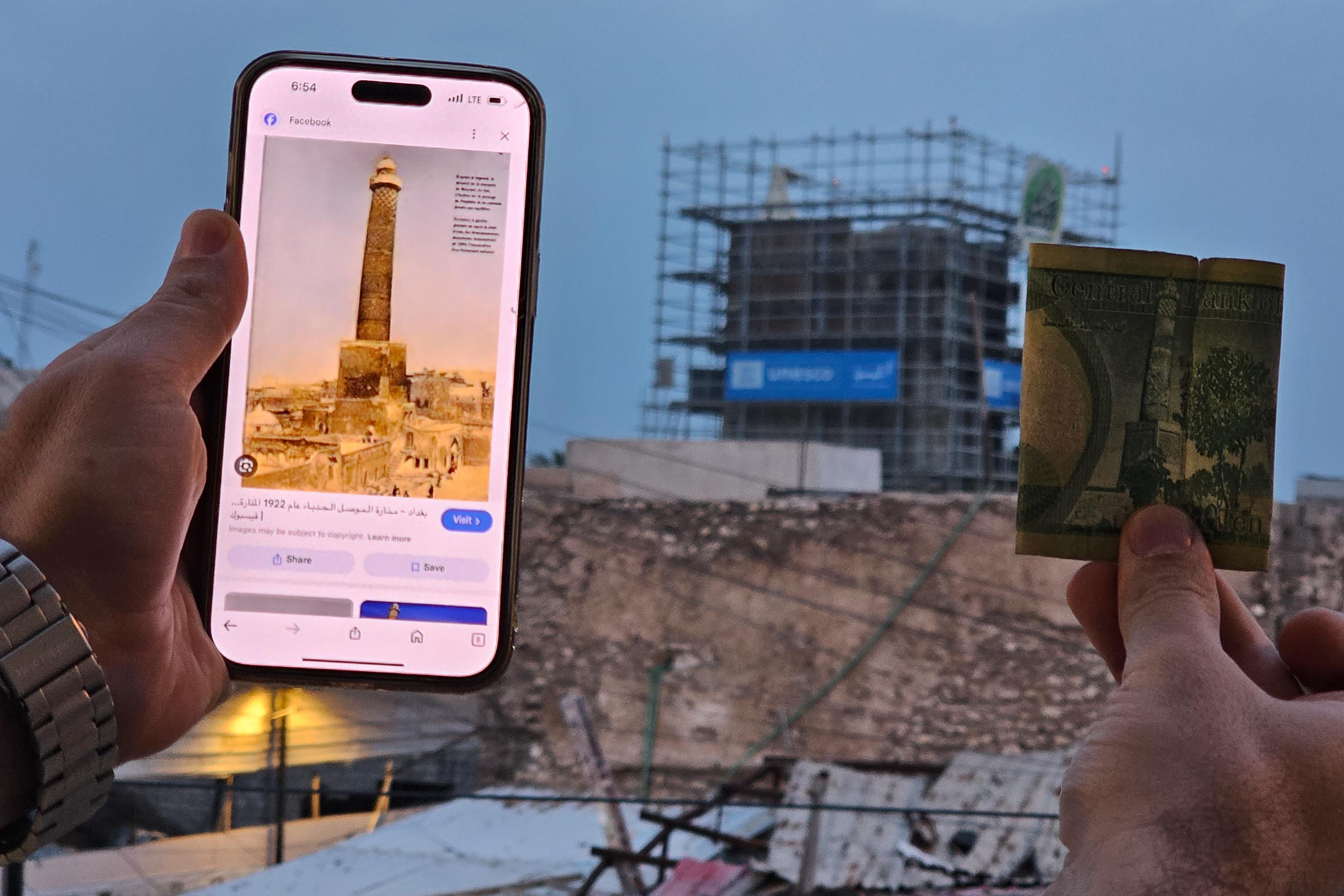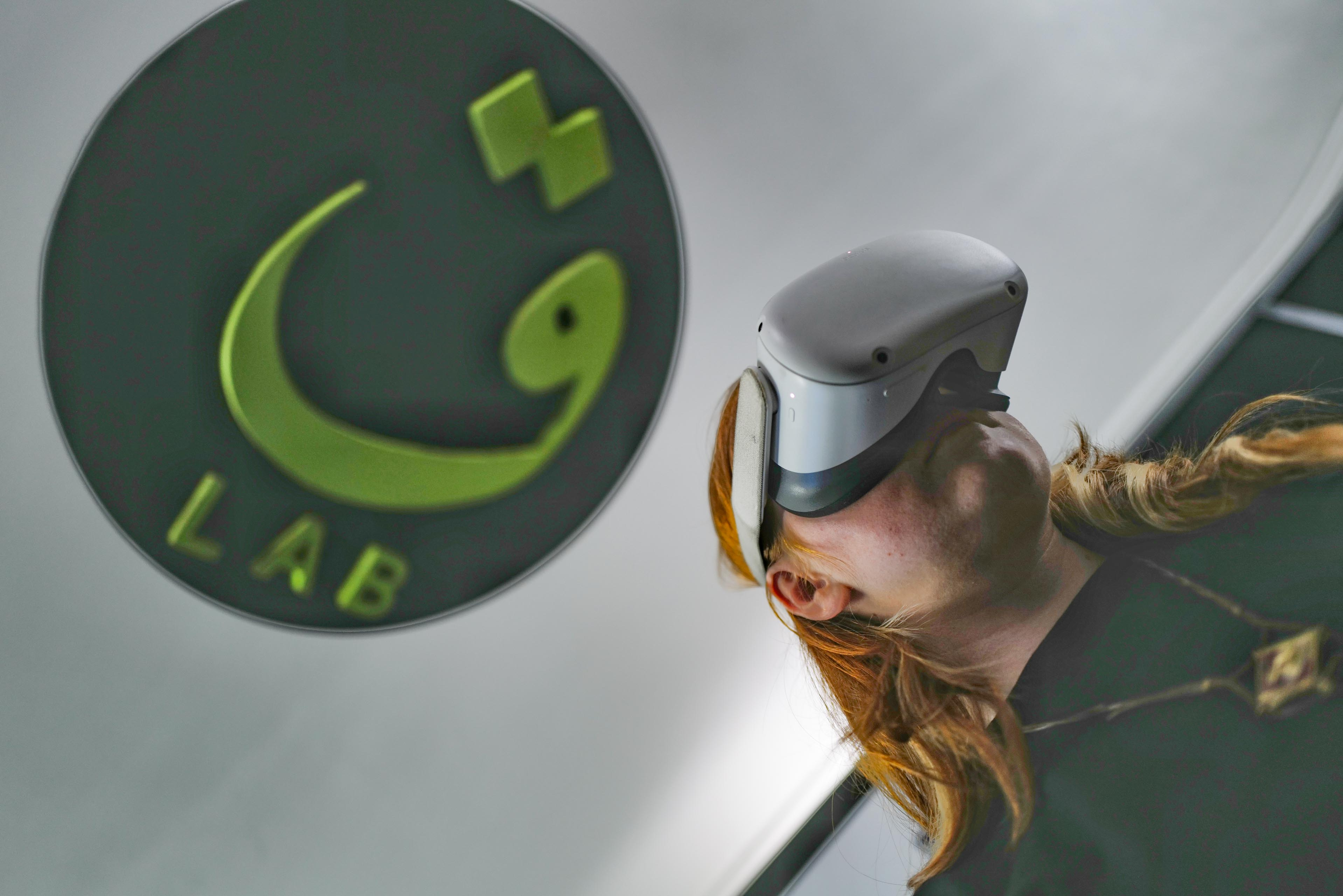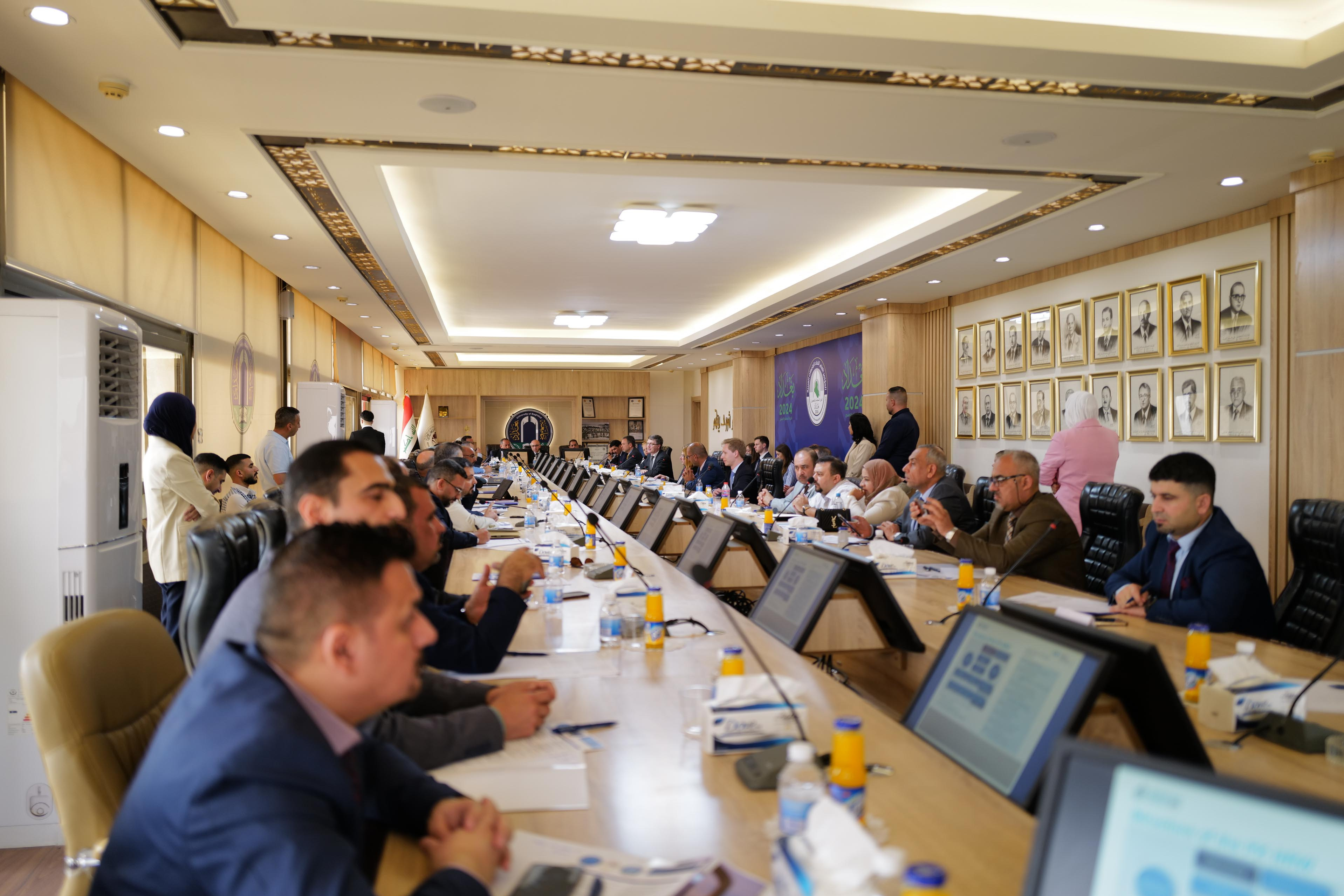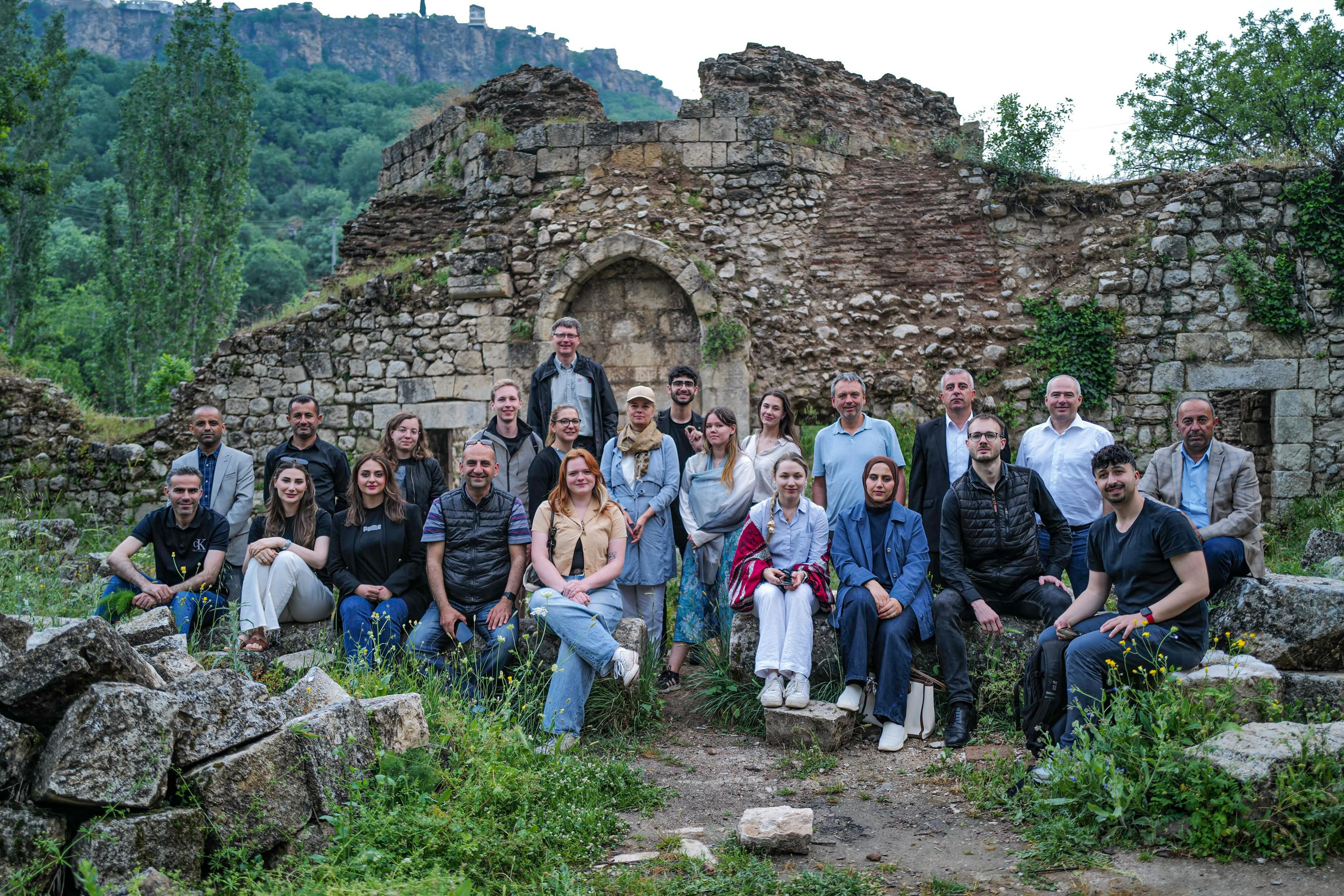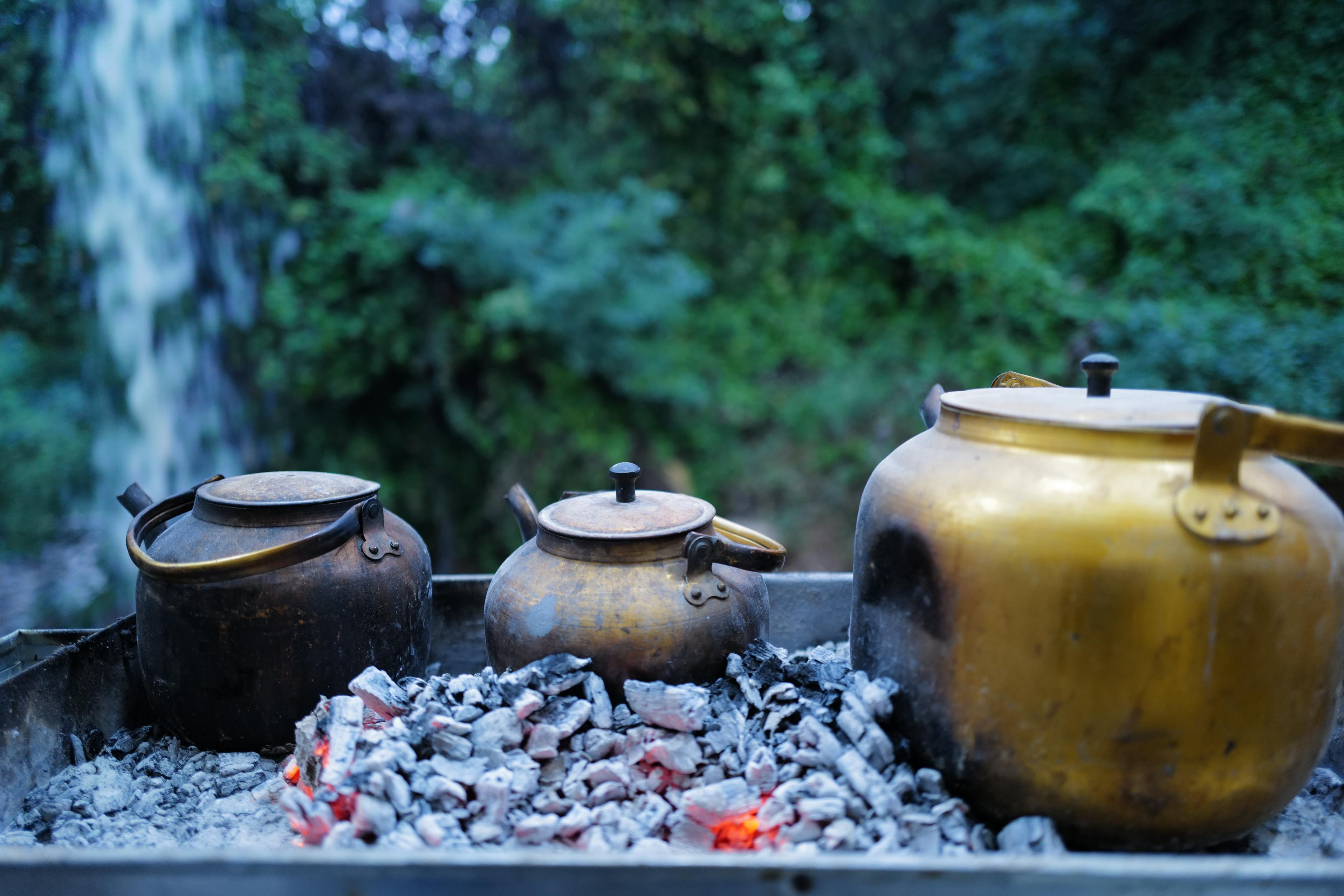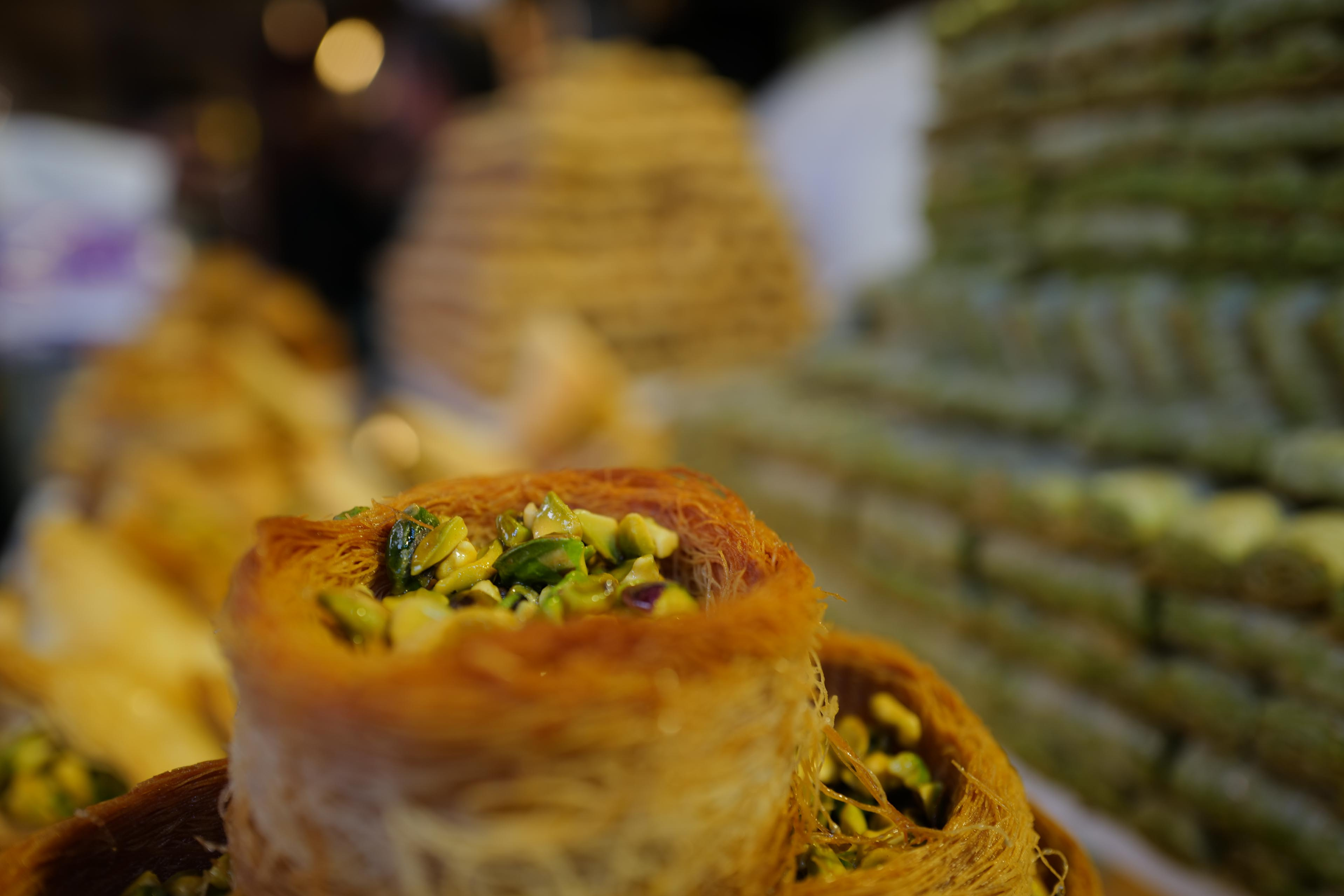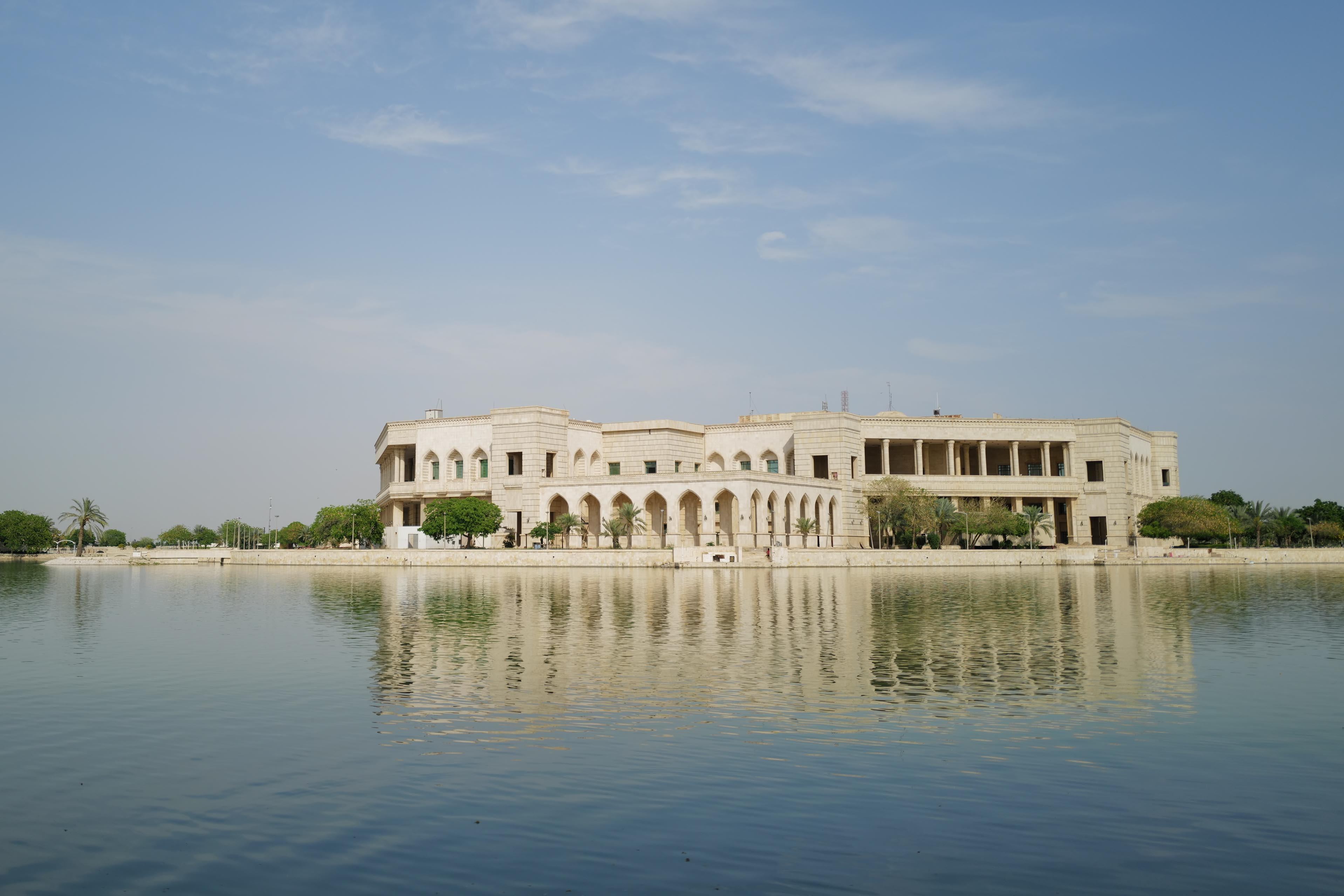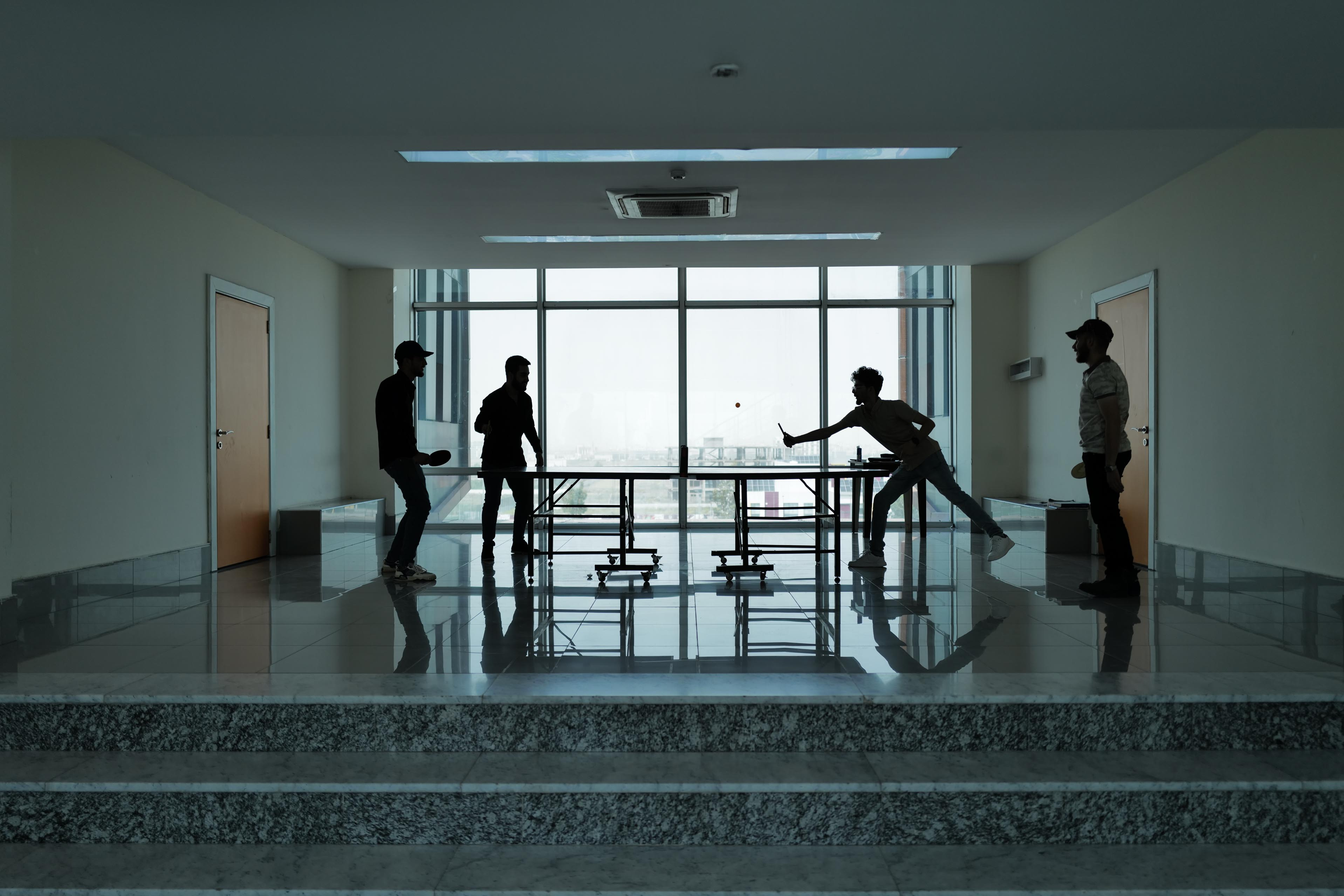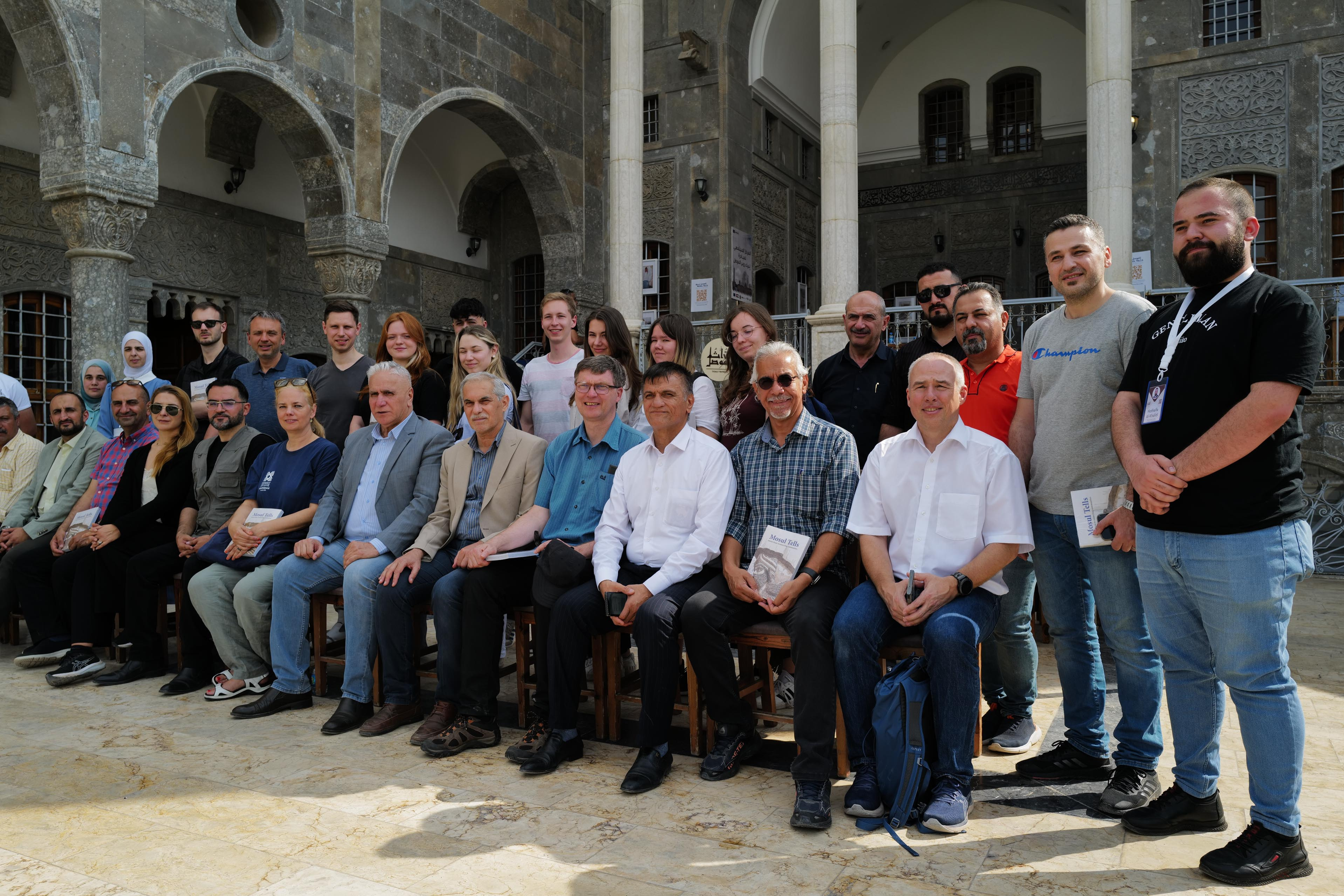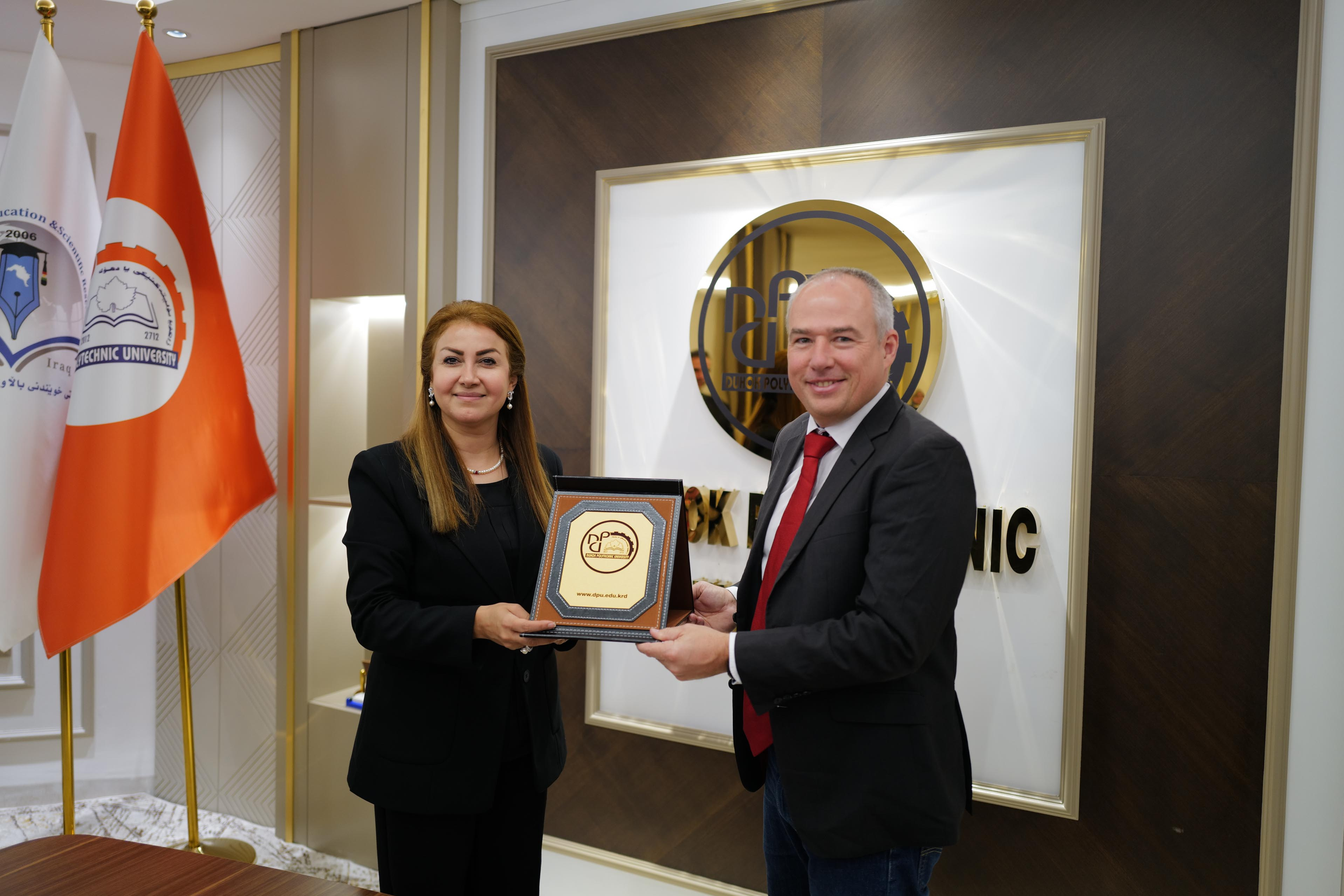Cooperation Middle East and Northern Africa

Students and lecturers from German universities of Applied Sciences visited Iraq in April to initiate joint teaching and research projects there. The trip took place as part of the DAAD-funded "Project Innovation Hub", in which Darmstadt University of Applied Sciences, Bonn-Rhein-Sieg University of Applied Sciences, Ernst-Abbe-University of Applied Sciences Jena and Brandenburg University of Applied Sciences are involved as project managers. The aim is to give young people from crisis regions in the Middle East and North Africa access to German higher education and to connect researchers with each other. Since there is often a lack of funding for travel and the security situation or visa problems do not allow a stay abroad, a digital learning platform forms the core of the project. For example, students from countries such as Iraq, Sudan, Jordan or Lebanon can take virtual courses at German universities. Project meetings are also held on site to set up the platform. The fact-finding mission to Iraq took place with stops in Baghdad, Erbil, Mosul and Duhok. The team returned with intense impressions, which h_da student Sophie Bade describes in a film.
By Christina Janssen, 3.9.2024
It is about changing people's way of thinking, emphasizes Prof. Dr. Kossay Al-Ahmady, President of Mosul University: "After the 'Islamic State' has dominated our lives and thoughts for three years, we need a new beginning. But the big question is: How do you change the minds of people?" After the liberation of the city by the Iraqi army in 2017, the University of Mosul launched a large-scale campaign to encourage citizens – to cosmopolitanism, democracy, joie de vivre, peaceful coexistence: "We launched more than 150 social media channels and posted something almost every day. So, we tried to change something step by step. It's very difficult, but little by little we've succeeded. The University of Mosul has thus developed into an important social factor. And we will continue to do so."
Project Innovation Hub
Video: Sophie Bade, Hochschule Darmstadt - University of Applied Sciences (h_da)
The "Project Innovation Hub" (PIH) is intended to help strengthen the Iraqi education system. During the visits of the German delegation to universities throughout the country, German and Iraqi students therefore exchanged their experiences, research interests and worldviews in workshops. "It is impressive to see how universities have been rebuilt and education has become a priority in the country within such a few years," says film student Sophie Bade from the h_da. Paul Grimm, Professor of Augmented and Virtual Reality at the h_da's Department of Media, adds: "Science offers ideal conditions for cross-cultural exchange. Iraq now needs a Bologna moment in order to enable the international mobility of students through a standardization of courses and degrees, as in Europe."
The overarching theme of the Student Academy, which is organized by the project team, is the digitalization of UNESCO World Heritage Sites. The cooperation aims to develop solutions for the digital "conservation" of endangered historical sites. Using new technologies such as photogrammetry, laser scanning, and 3D modeling, students work with faculty to create digital twins of cultural treasures that are made accessible to the public and preserved in detail for future generations. In Jordan, several digitisation projects of this kind are already taking shape – including the famous Nabataean city of Petra and the citadel in the capital Amman (see also impact article “Virtual Deserts”).
Another place could be the Erbil Citadel, which is currently closed to the public due to extensive restoration work. According to UNESCO, it is one of the oldest continuously inhabited places in the world, its history dates back to the 5th millennium BC. The German group of visitors and their Iraqi hosts were able to take a look at the architectural highlight in order to discuss their digitization plans. They are also supported by non-university partners such as the Directorate of Antiquities and Heritage in Erbil or the Jordan Museum.
Impressions from Iraq. Photos: Paul Grimm.
For the German scientists, the tour offered the opportunity to get to know their Iraqi colleagues and to explore possibilities for joint teaching and research projects. "The situation is not easy," explained Prof. Dr. Julia Schnitzer from the leading TH Brandenburg: "The best thing we can do in view of the current situation in the Middle East is to continue and expand the existing cooperation and strengthen trust on both sides. It's a long-term process, but it helps both sides."
Currently, it is difficult to get permission for excursions to Iraq due to travel warnings from the German Federal Foreign Office. “For our project to succeed, the strong desire and will of everyone involved was necessary,” sums up Professor Paul Grimm from h_da. “Without the special commitment of the TH Brandenburg and in particular the university’s president Prof. Dr. Andreas Wilms this would not have been possible.” It does take a little courage to set up a project like this – and thus contribute to greater exchange and cooperation with a region on the move.
Contact the h_da science editorial team
Christina Janssen
Science Editor
University Communication
Tel.: +49.6151.533-60112
Email: christina.janssen@h-da.de
Translation: Paul Grimm
Contact our experts
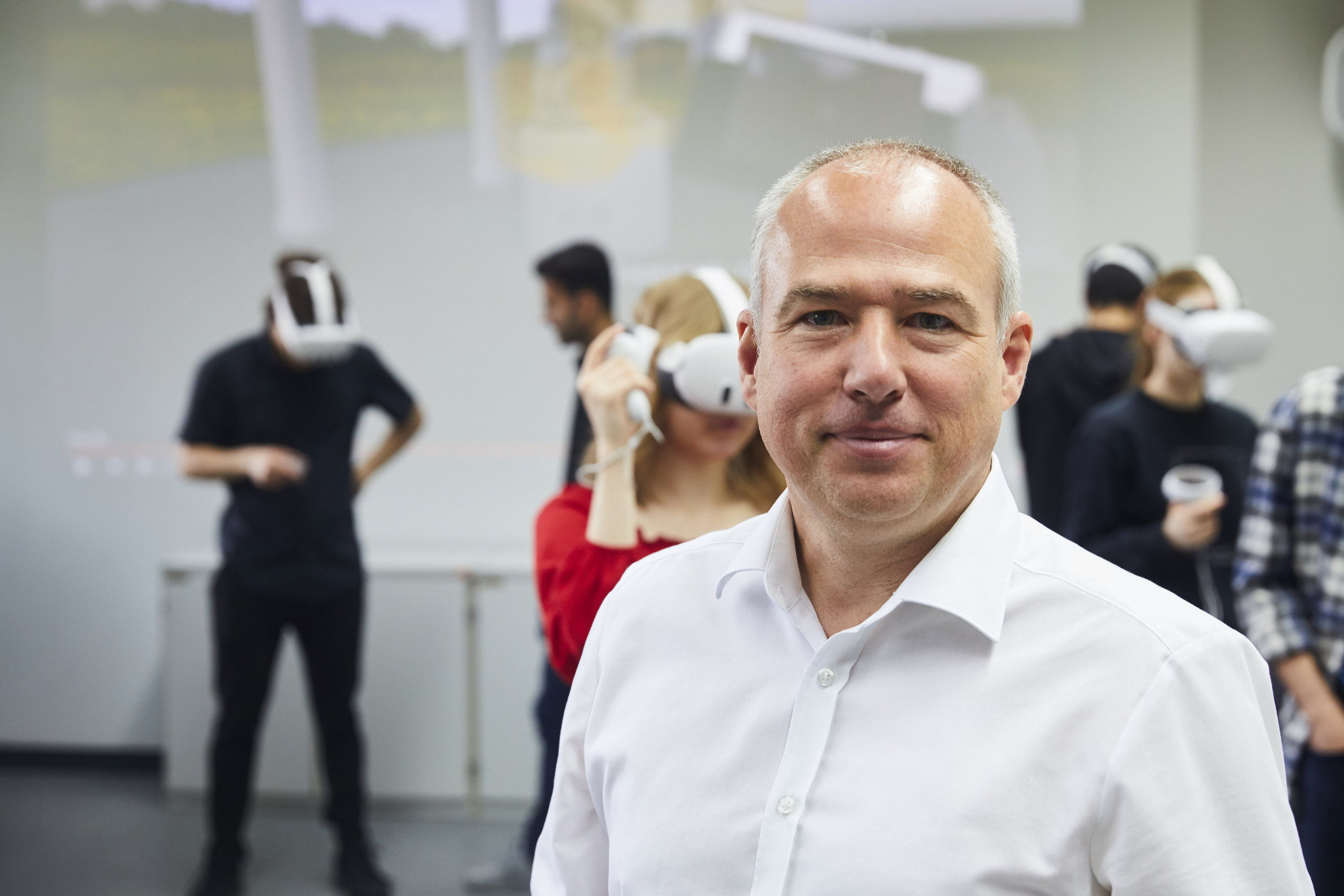
Prof. Dr. Paul Grimm, h_da:
avrd.mediencampus.h-da.de/grimm/
Links
Project website: Project Innovation Hub
impact, 15.2.2023: „Virtual Deserts“
